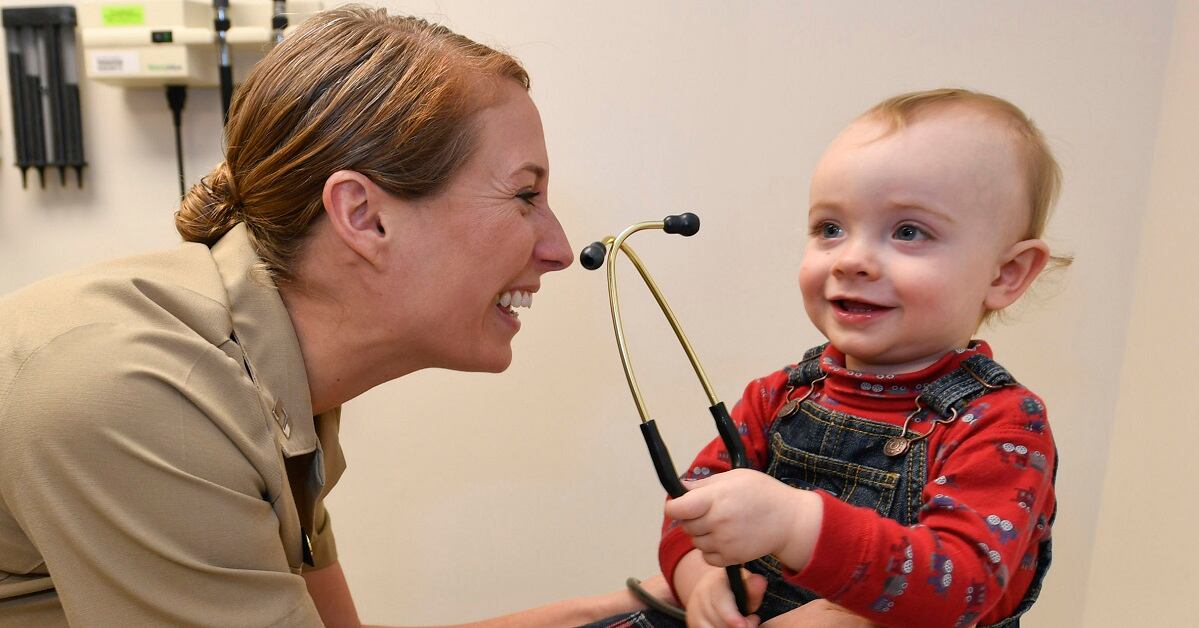This story was corrected with the total number of employers, 500.
The number of companies and organizations committed to hiring military spouses hit 500 Wednesday, with the addition of 86 new partners in the Military Spouse Employment Partnership.
Kohl’s and Chico’s; Allstate and Travelers; the U.S. departments of State, Education, Interior, Housing and Urban Development; and Boy Scouts of America are just a few of the 86 new hiring partners inducted into the MSEP. Military spouses interested in perusing the 235,000 job listings currently offered by the MSEP employers can click here. The 86 new partners brings the total number “right to 500,” officials said.
These partners sign a statement agreeing to recruit, hire, promote and retain military spouses, and are vetted by defense officials before they join the effort. It’s designed to give companies direct access to the military spouse pool of employees who are in a broad range of fields. Since 2011, when the DoD MSEP program expanded from the original Army program, partner organizations have hired more than 175,000 military spouses, said Kim Joiner, deputy assistant defense secretary for military community and family policy. The MSEP is one part of a wide range of services designed to further military spouse employment under the Military OneSource Spouse Education and Career Opportunities program.
Defense and service officials have taken a number of steps to address the issue of military spouse unemployment, which, at 22 percent based on the last survey, remains higher than unemployment in the general population.
During a virtual ceremony Wednesday when the 86 new companies and organizations were inducted into the MSEP, second lady Karen Pence thanked the partners for their efforts to hire military spouses. “Military spouse employment is a very important aspect of a strong and resilient military family,” she said.
Anna Cook, a military spouse who moved from Florida to California in 2019, said she is very grateful that her employer, Black Knight, Inc., had previously joined the Military Spouse Employment Partnership. “I never once worried about my job when we received orders to California,” she said during the ceremony, adding that her boss provided her with the resources she needed to continue her career while working from home, supervising a team of attorneys. Cook is deputy chief compliance officer for Black Knight, a company providing financial technology and data analytics.
She described the logistics of moving the family that are well-known to spouses who make a permanent change of station move — from arranging for the move of household goods, to disenrolling children from school and finding a new one, to finding a new home at their new location. As many military spouses do because of the service member’s absence, she handled many of the logistics herself, while working full time, and with a 2-year-old and 4-year-old.
“We just do it. We get it done. We establish our lives at a new location,” Cook said. But too many spouses have the additional, heavy burden of leaving a job and finding a new position at their new location that can help support their career goals as well as their family’s finances. Being able to keep that position during a move relieves much of the stress.
She said she appreciates companies like those in the MSEP “that are committed to providing support to a demographic, the military spouse, that is sometimes misunderstood.” Military spouses are hard workers, have career goals, are well educated, “and should be sought after by employers.”
Cook said she hopes more employers will make an effort to hire military spouses. With more employees working from home during COVID, she said, “we now know working from home can be effective.
“If anyone can do it, military spouses can.”
Mollie Raymond, wife of Gen. John “Jay” Raymond, the first chief of operations for U.S. Space Force, said she’s grateful for the efforts of employers to hire military spouses. “We don’t want our spouses to give up their dreams of meaningful employment, and certainly don’t want our members to give up their service” because of employment challenges of their spouse, she said.
She said if she hadn’t faced starting over and being underemployed with multiple moves, she might be employed today. “Your partnership would’ve been a game changer for me,” she said. “Maybe my path would have been a little different.”
But the bottom line is, she told representatives of the 86 new MSEP partners, “I know that today’s military spouses will benefit greatly from your hiring, promoting and mentoring them.”
Karen has covered military families, quality of life and consumer issues for Military Times for more than 30 years, and is co-author of a chapter on media coverage of military families in the book "A Battle Plan for Supporting Military Families." She previously worked for newspapers in Guam, Norfolk, Jacksonville, Fla., and Athens, Ga.





